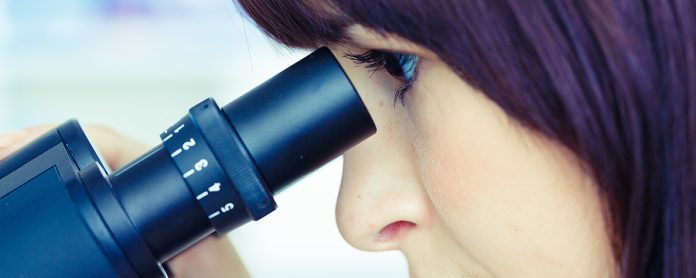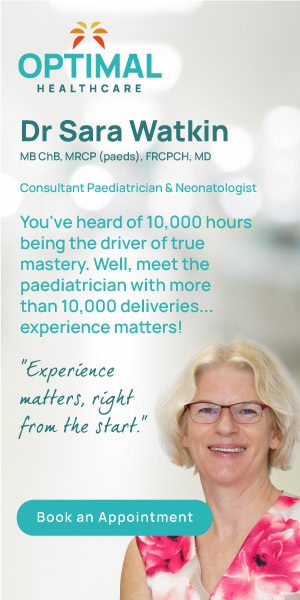A recent study of seven English- and Creole-speaking countries in the Caribbean has revealed that one in seven individuals born of these islands with a diagnosis of breast or ovarian cancer have one or more inherited gene mutations.
The seven Caribbean countries studied were Jamaica, Trinidad and Tobago, the Cayman Islands, the Bahamas, Barbados, Dominica, and Haiti. Of the seven countries, Cayman revealed the second-lowest rate of breast and ovarian cancer at 6.3%. Jamaica had the lowest rate of hereditary breast and ovarian cancer at 4.9%. At 23%, the Bahamas had the highest rate, following by Barbados at 18%, Trinidad and Tobago at 12%, Dominica and 8.8%, and Haiti at 6.7%
Dr. Judith Hurley, oncologist and researcher at the University of Miami Miller School of Medicine, began investigating racial disparities in breast cancer rates in 2002. Together with fellow researcher, Dr. Sophia George, at the Sylvester Comprehensive Cancer Centre at the University of Miami, Hurley developed the study after noting that many of her breast cancer patients from the Bahamas were unusually young. Other researchers from Sylvester, the University of Toronto, and the Bahamas joined Hurley and George to research this phenomenon.
The study revealed that more than 25% of the women who participated had mutations in two genes, BRCA1 and BRCA2. In the United States, by comparison, fewer than 5% of patients with breast cancer have these mutations.
As well, the average age of onset in women from the Bahamas who were diagnosed with breast cancer was 42 years, while in the US, the average age of breast cancer onset is approximately 20 years older.
The leading cause of death in women from the Caribbean is breast cancer, and the fourth is ovarian cancer.
After the study in the Bahamas, the team expanded their research to the six other island nations, including Cayman, making the study the largest cross-sectional study of this particular kind.
The team titled the findings of the study ‘Gene Sequencing for Pathogenic Mutations Among Adults with Breast and Ovarian Cancer in the Caribbean’. The findings were published in the JAMA Network Open medical journal on 1 March 2021.
The study revealed several medically significant findings. Patients with breast cancer with BRCA mutations had a mean age of 40.7 years, while those without mutations were 47.5. As well, different mutations were found on different islands, leading George to compare the mutations to each island’s “own unique genetic fingerprint”.
In 2012, Hurley and her team arrived to Cayman to perform gene tests on women who were either recuperating from or currently living with breast cancer or ovarian cancer. The 62 women who took part in the testing had at least one Caymanian grandparent, and they were later evaluated with advanced technology that enabled the study of more gene sequencing.
The testing revealed that 6.3% of the 62 women had a breast cancer gene. The Caymanian numbers were much lower than that of other island nations and much closer to US or European numbers. The gene mutations found were BRCA1 and BRCA2, which are mutations that lead to breast cancer in 65-80% of people 70 years of age and older and ovarian cancer in up to 40%.
Hurley and her team of researchers evaluated 1,018 individuals who had breast or ovarian cancer in total. At first, the terms of the study involved only a specific group of mutations: the BRCA1, BRCA2, PALB2, and RAD51 mutations. As the study progressed, a form of multi-gene panel testing became more accessible to the researchers, which meant that the patients were evaluated according to a full next-generation sequencing on a panel of 30 genes.
Hurley, George, and the other members of their team hope that their findings will encourage improved screening and treatment of cancer patients from the Caribbean, both on the patients’ respective islands and in southern Florida. Anyone with a family history of breast cancer or ovarian cancer, in particular, is encouraged to undergo genetic screening.
In the Cayman Islands, routine screenings for breast cancer begin at age 40, unless a doctor makes a different recommendation. Women from the Bahamas with a parent or sibling with breast cancer should start the screening process by the time they are 25 years of age. In the UK, women can start receiving mammograms every three years, starting at age 50, but women in the US are advised by the American Cancer Society to begin being screened once they turn 40 years of age.
In the Cayman Islands, cancer still carries a stigma, as evidenced by the reluctance of some patients to participate in the study, according to Dr. Sook Yin, medical director of the Cayman Islands Cancer Society, who worked with the Sylvester researchers. As well, some patients feared that the discovery of an inherited gene that makes them vulnerable to cancer would lead to problems with their health insurance companies like higher premiums and losing their insurance altogether.
Though genetic-sequencing tests are not being performed at the moment in Cayman, health professionals in the US can mail tests and swab samples to anyone who would like to take the tests. Some of the patients who have chosen to request these tests have already discovered that they possess inherited genes that make some kinds of cancers highly plausible.
These discoveries have led some patients to follow the lead of actress Angelina Jolie, who opted to undergo a preventative double mastectomy after learning that she had the BRCA1 gene and that she had an 87% risk of developing breast cancer and a 50% risk of ovarian cancer. Jolie’s mother died at the age of 56 years after living with breast cancer for ten years.
In the Bahamas, researchers noted that the gene mutations explained 25% of the cancer cases, leaving 75% of the cases unexplained. The gene mutations led to a diagnosis in women as young as 33 years of age, but even without the mutation, women as young as 48 developed breast or ovarian cancer.
To Hurley, this phenomenon suggests that there is more to learn about the prevalence of breast and ovarian cancer in the Bahamas, and more reason to perform life-saving genetic-sequencing earlier.
Though mammogram screenings are available, 90% of women in the Sylvester study learned about their breast cancer when a self-check revealed a lump or when their doctor had discovered a mass. Most of these women were in Stage 3 or 4 by the time they received a diagnosis. Hurley encourages a pro-active approach to self-screening, suggesting that women perform brief checks of their breasts every day, so that lumps can be found as early as possible.
The Breast Cancer Foundation charity in the Cayman Islands recognises the importance of the Sylvester researchers’ findings. Janette Fitzgerald, chief administrator of the organisation, encourages women of all ages to learn more about their risk of breast cancer as early as possible through programming for school-age young women.
Dr. Ginny Hobday, medical director of the Breast Cancer Foundation, pointed out the importance of geography in cancer risk factors, linking the elements of the study that help to identify high-risk groups with earlier diagnosis and treatment.
The Cancer Society, another charity in the Cayman Islands, states that most health insurance plans offer a minimum of $200 in wellness benefits that can be applied to mammogram screening.
In the Cayman Islands, registration of cancer cases with the Cancer Registry by physicians and other medical professionals is not required. Without this information, the exact numbers of breast and ovarian cancer cases remain unknown.
Since the March publication of the study, Hurley and George are continuing their research by exploring the role of ‘epigenetic factors’ in the study group, like environment, diet, and lifestyle.




